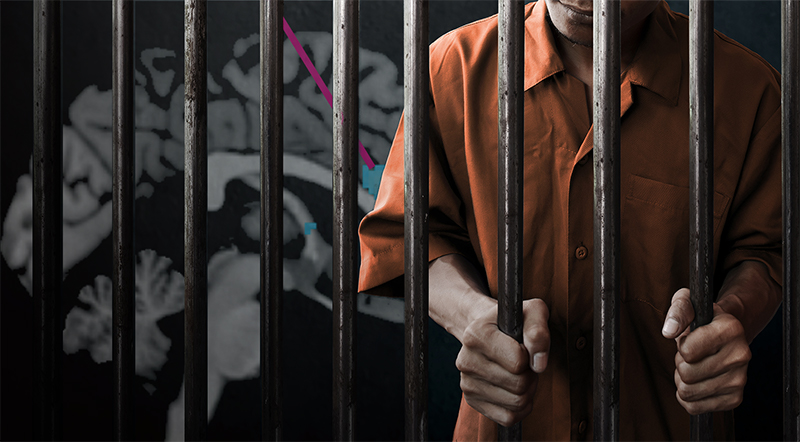Kyoto University researchers show decreased activity in brain region of psychopathic prisoners that cheat for personal gain
Psychopathy is a personality disorder where an individual’s moral compass has gone astray owing to emotional detachment issues. While psychopaths display more dishonest behavior than healthy people, the biological trigger for this dishonesty is not well understood.
Associate Professor Nobuhito Abe of Kyoto University led a study, published in the journal Social Cognitive and Affective Neuroscience , to understand the brain activity of psychopaths.
In the experiment, 67 male psychopaths from a North American prison were given an honesty test where they could self-report the outcome of a random computerized coin toss while having their brain activity monitored by magnetic resonance imaging. The psychopaths were separated into high-, medium- and low-psychopathy groups based on their scores in the Hare Psychopathy Checklist.
If the prisoners made an accurate prediction, they received a financial incentive. However, because the psychopaths self-reported the results, they could lie and claim a correct prediction even when that was not the case.
Although the level of psychopathy did not determine how frequently the participants lied, Abe found that prisoners with higher levels of psychopathy lied more quickly and also had lower activity in a region of the brain called the anterior cingulate cortex, or ACC. The ACC is believed to be associated with detecting cognitive conflict.
This study suggests the reduced activity in the ACC may reflect an automatic response in psychopaths for dishonesty that is unregulated as opposed to a controlled response in healthy individuals where one has to choose between being honest and dishonest.

Researchers find decreased activity in conflict regions of the brain in psychopathic prisoners (Kyoto University)
Paper information
【DOI】 https://doi.org/10.1093/scan/nsy050
【KURENAI ACCESS URL】 http://hdl.handle.net/2433/232686
Nobuhito Abe, Joshua D Greene, Kent A Kiehl (2018). Reduced engagement of the anterior cingulate cortex in the dishonest decision-making of incarcerated psychopaths. Social Cognitive and Affective Neuroscience, 13(8), 797-807.





